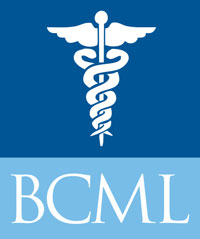Who would you call if you had a medical concern? While major, life-threatening conditions mean an easy decision to go to the hospital, non-emergency situations can be more difficult when you do not have a regular doctor. Family doctors specializing in family medicine can serve as a primary source of care for each member of your household from children to senior citizens.
Having a family doctor in place ensures you have a reliable physician to call for regular physicals, management of chronic illnesses, minor injuries, fevers, rashes, and all the many medical concerns you and your family may face. While a family doctor may not be able to treat emergency medical situations, they can often help you avoid the factors that can lead to emergency issues. This is just one of the many reasons you should have a family doctor. Let’s look at what a family doctor does and why it is so important to form a relationship with one for your family.
What is a Family Doctor?
A family doctor is a doctor who has training in family medicine which enables them to treat patients of all ages. This differs from an internist who can also provide general care but only for adults.
A family doctor is able to:
- Help you manage chronic conditions such as diabetes and heart disease.
- Refer you to specialists when needed.
- Treat acute conditions such as rashes, infections, minor injuries and much more.
- Provide preventative care testing and analysis.
- Conduct annual check-ups.
- Treat patients of all ages.
10 Reasons You Should Have a Family Doctor
- Your Family Doctor Knows Your Whole History: While any doctor can read your chart, your dedicated family doctor will get to know you personally and be better able to provide personalized recommendations. This often makes the process of getting a proper diagnosis and treatment more efficient especially if there may be multiple family members suffering the same illness or condition.
- You Always Have Someone to Call: As mentioned above, it can sometimes be difficult to know who to call when you have a non-emergency medical condition. While you may be able to go to a hospital for certain conditions, a family doctor can often provide faster care with less stress.
- Helps You Stay on Top of Preventative Care: Though it may be easy to remember to get your eyes checked when your glasses stop performing as well, it can often be much too easy to ignore our body’s need for regular check-ups. A family doctor will help to remind you of necessary testing and let you know which tests are required based on your age and health.
- Easy Specialist Referrals: While finding a family doctor who is taking new patients can be difficult, it is often far more difficult to find a specialist. Not only can a family doctor tell you what specialist you may need, they will likely have connections with specialists in the area which can help with getting an appointment.
- A Family Doctor Treats Your Whole Family: For those with children in their family, a family doctor is often the ideal choice for primary medical care. This makes ensuring your whole family stays on top of regular visits much more convenient.
- They Know What Treatments are Best for You: Do you like alternative treatments such as yoga or meditation before considering drugs? Do you struggle with taking your medication on time? A family doctor you have formed a relationship with over many years will often know the answer to these questions and can recommend treatment that will fit your lifestyle.
- Better for the Community: While there are numerous benefits to you as an individual for having a family doctor, you will also be contributing to a healthier system for all. Studies have shown that the preventative care a family doctor provides helps to reduce emergency room visits. Not only is it good for you to avoid a trip to the emergency room, it leaves more resources for others with other emergency conditions.
- Help You Manage Chronic Conditions: Regular check-ups are important for everyone but are especially critical for those with chronic conditions. Your family doctor can help you stay on track by adjusting your medications, testing, and treatment as needed.
- Family Doctors Treat the Whole Person: While specialists are an important part of the medical care system, a general practitioner like a family doctor is able to help with the diagnosis and treatment of a wide range of conditions and illnesses. Unlike specialists whose experience is focused on a particular part of the body or certain conditions, a family doctor is better able to take your whole medical history into consideration before prescribing treatment.
- Offers Treatment Flexibility: Due to a family doctor’s extensive training in a wide range of areas, they are often able to provide or recommend a variety of treatment options. Their own knowledge base plus their connections within the medical community give them the resources needed to present you with multiple treatment options when possible. For example, while a surgeon is best equipped to recommend surgical options, a family doctor may be better able to recommend nonsurgical options as well.
- BONUS Reason: Family Doctors are Free: If you are a member of OHIP, your family doctor visits are completely covered. Even more importantly, building a relationship with your family doctor can help you avoid physical, emotional, and financial costs in the long run as you work together to improve your health.
Find Your Family Doctor Today
Choosing a family doctor may seem like a daunting task or it may even seem unnecessary if you do not have chronic conditions. However, having a family doctor in place will give you and your family the peace of mind you deserve when illness or injury strike.
At BCML, we are here to help you manage your total health and find the care providers that are right for you. To connect with our primary care physicians and our team of medical care professionals, call (416) 929-1900.


